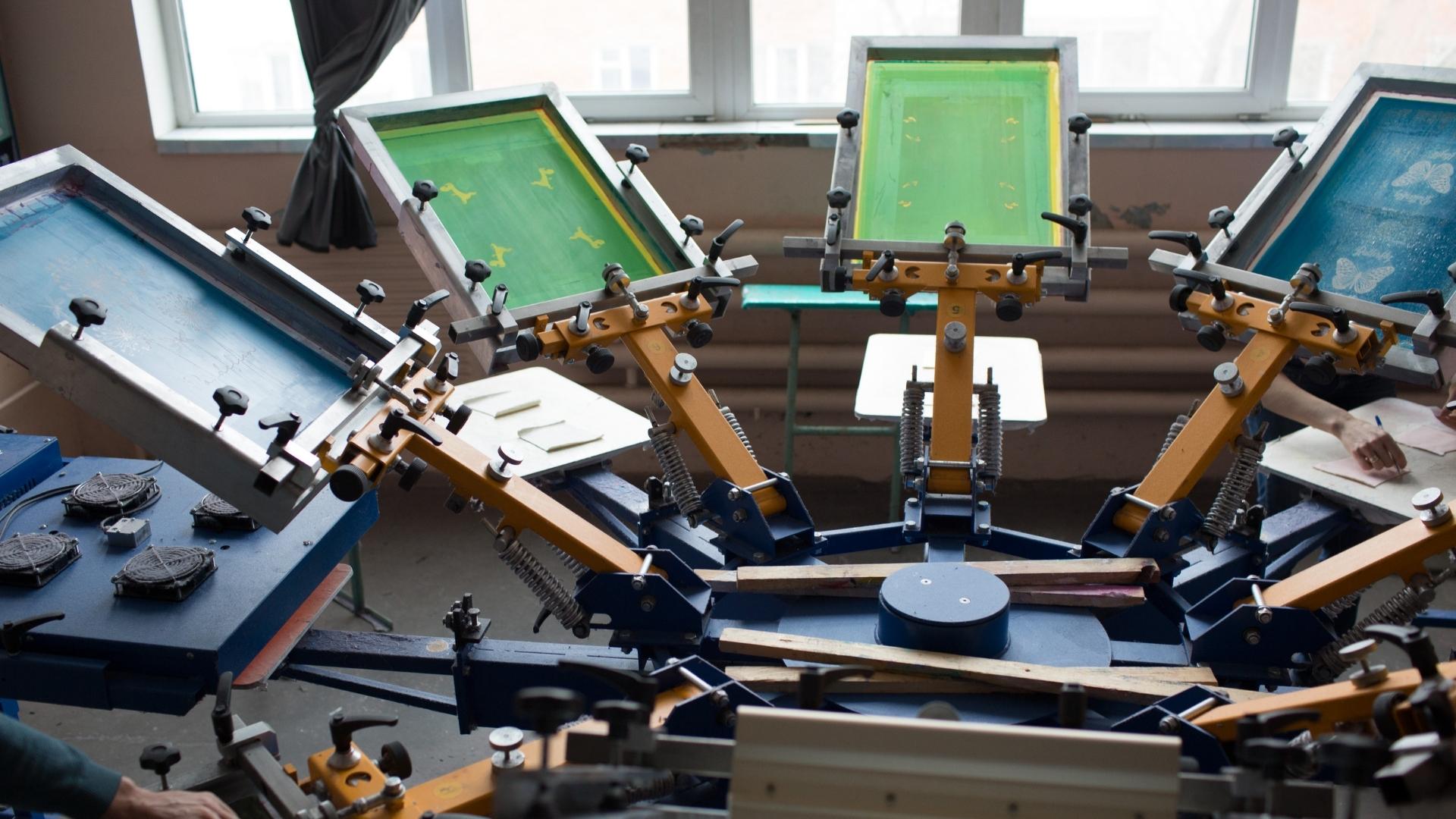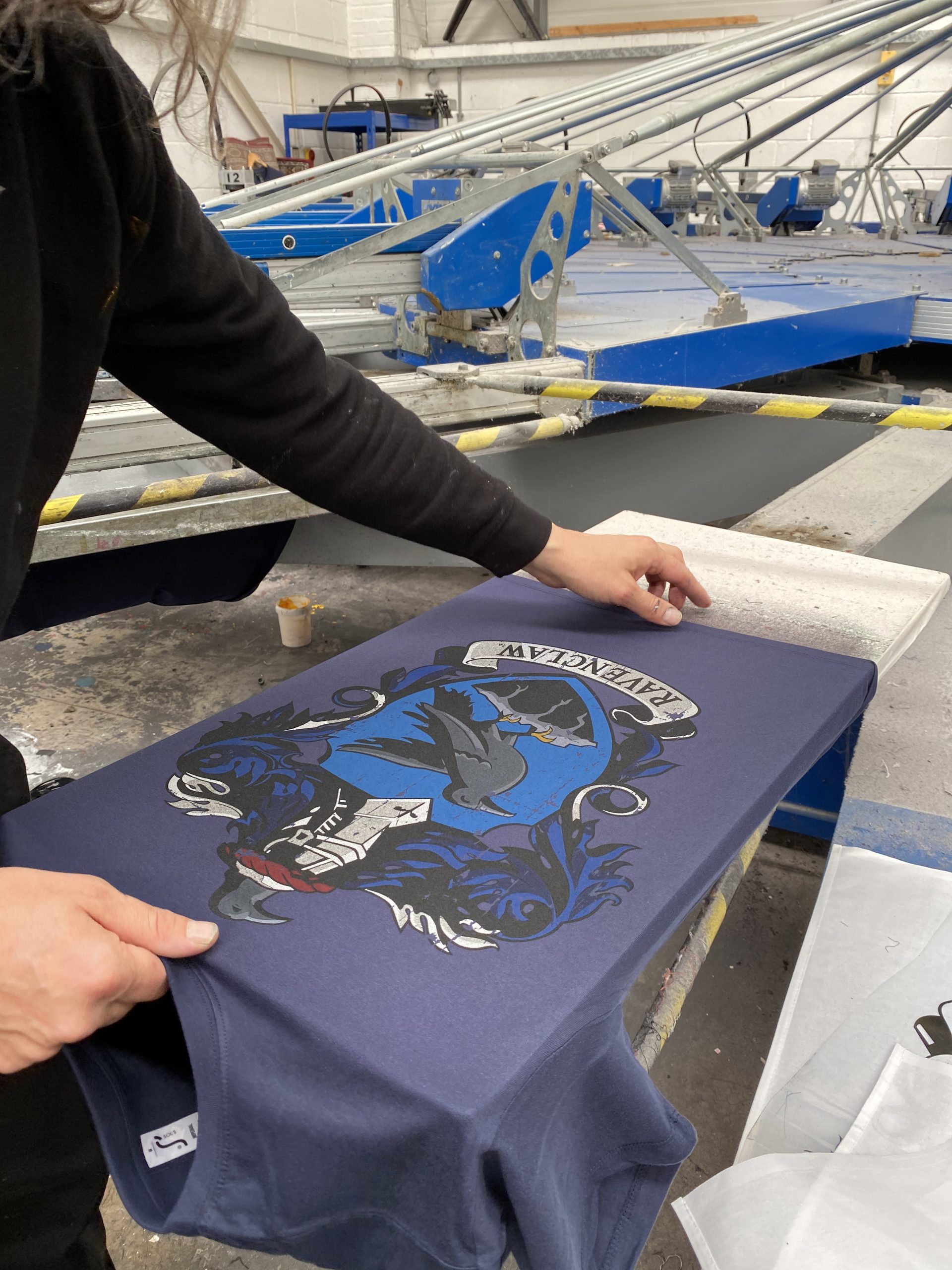ChatGPT said: Everything you should know about 10:9 Design contact for service inquiries
The Essential Overview to Recognizing Screen Printing and Its Versatile Utilizes
Screen printing has a rich background that dates back to ancient times, evolving right into a sophisticated strategy used throughout various sectors today. This guide discovers the complexities of the screen printing procedure, outlining its applications in advertising, home, and fashion style - 10:9 Design Company. Recognizing these basics can open innovative capacity for both business and artistic tasks. The adhering to areas will reveal vital pointers and strategies to boost one's screen printing endeavors
The History of Screen Printing
Although screen printing has origins that map back centuries, its advancement shows the creative and technological improvements of numerous cultures. Coming from ancient China, the technique was initially used for embellishing textiles and later infect Japan, where it became indispensable to Ukiyo-e woodblock printing. The technique shifted to Europe in the 18th century, where it obtained appeal amongst artisans and industrial printers. The development of image solution in the 20th century transformed screen printing, enabling more intricate layouts and greater efficiency. Musicians like Andy Warhol additionally drove its popularity, using the tool to produce renowned jobs that mixed commercialism and fine art. By the late 20th century, screen printing had actually developed itself as a versatile strategy, utilized in vogue, advertising, and art. Today, it continues to evolve, incorporating digital modern technology and broadening its applications across numerous industries.
The Screen Printing Refine Explained
Screen printing transforms imaginative visions into substantial styles via a series of precise actions. Initially, a photo is created and after that moved onto a screen, generally made from fine mesh material stretched over a frame. A light-sensitive emulsion is put on the screen, which is subjected to light, solidifying in locations not covered by the image. After washing out the unhardened emulsion, a pattern is formed.
Next off, the screen is placed over the substratum, whether it be textile, paper, or another material. Ink is after that pressed through the open areas of the stencil utilizing a squeegee, transferring the design onto the substrate below. This procedure can be duplicated for numerous colors, calling for separate displays for each and every hue. Lastly, the printed thing is treated utilizing warmth to assure the ink adheres appropriately, causing a sturdy, vibrant style on-line.
Kinds Of Screen Printing Techniques

Additionally, specialized methods, such as discharge screen printing, get rid of color from the fabric to develop softer prints, while foil screen printing uses metal foil to attain a shiny surface (10:9 Design LLC Company). Each strategy provides unique qualities, satisfying numerous innovative needs and manufacturing scales, inevitably broadening the opportunities within the screen printing domain
Applications of Screen Printing in Different Industries

Additionally, the signs and advertising industries make use of screen printing for creating distinctive screens and banners. This approach permits for bold shades and detailed designs that catch focus. In electronics, screen printing is used for using conductive inks to circuit card, crucial for component connections. In addition, the home design market welcomes screen printing to produce distinctive styles on textiles and wall surface art. Overall, screen printing serves as a vital device throughout varied areas, improving items with individualized and aesthetically enticing graphics.
Tips for Successful Screen Printing Projects
While undertaking a screen printing job, cautious interest to information can substantially boost the last end result. Initially, picking high-grade products is crucial; this consists of the screen, inks, and substratums. Using appropriate mesh counts can influence ink deposition and information resolution. Prep work is similarly crucial; detailed cleansing of screens and proper direct exposure times assure crisp prints.
Next, accurate enrollment is crucial for multi-color prints. Utilizing alignment devices can assist achieve specific layering. In addition, testing prints on scrap materials before production aids determine potential concerns without squandering resources.

Often Asked Concerns
What Materials Are Best for Screen Printing on Fabric?
Cotton and polyester blends are perfect for screen printing on fabric due to their resilience and ink absorption. Additionally, specialized textiles like silk or canvas can generate special structures and finishes, enhancing the overall layout high quality.
Exactly how Do I Clean and Maintain Screen Printing Tools?
To keep and clean up screen printing equipment, one should routinely clean displays with proper solvents, check squeegees for wear, lubricate relocating parts, and store all things in a completely dry, dust-free atmosphere to lengthen their life-span.
What Are the Environmental Impacts of Screen Printing?
Screen printing can have substantial environmental impacts, consisting of chemical waste from inks and solvents, water usage throughout cleaning procedures, and energy intake. Lasting practices and environment-friendly materials are essential for decreasing these unfavorable results.
Can Screen Printing Be Done in your home Effectively?
Screen printing can be properly done at home with the i loved this best products and techniques. Enthusiasts can create top quality prints, though success depends on their ability degree, devices, and understanding of the procedure entailed.
What Are the Expenses Related To Starting a Display Printing Company?

Starting a screen printing business entails prices for devices, products, and workspace. Initial costs commonly range from a few hundred to several thousand dollars, depending upon the range, top quality of equipment, and desired production capacity.
Screen printing has an abundant background that dates back to old times, evolving into a sophisticated method utilized across different markets today. One more method, rotary screen printing, employs cylindrical screens, helping with constant printing on material rolls, thus improving effectiveness for massive productions. Additionally, specialty techniques, such as discharge screen printing, remove color from the textile to develop softer prints, while aluminum foil screen printing uses metallic foil to achieve a glossy coating. In the style market, screen printing is commonly utilized to create vibrant designs on garments, making it possible for brand names to showcase their distinct designs. Cotton and polyester blends are excellent for screen printing on textile due to their durability and ink absorption.